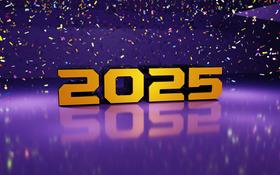For the 2025-26 school year, there are 3 public preschools serving 1,334 students in Wright County, IA.
The top ranked public preschools in Wright County, IA are Clarion-goldfield-dows Elementary School, Richard O. Jacobson Elementary School and Eagle Grove Elementary School. Overall testing rank is based on a school's combined math and reading proficiency test score ranking.
Wright County, IA public preschools have an average math proficiency score of 63% (versus the Iowa public pre school average of 73%), and reading proficiency score of 55% (versus the 69% statewide average). Pre schools in Wright County have an average ranking of 1/10, which is in the bottom 50% of Iowa public pre schools.
Minority enrollment is 46% of the student body (majority Hispanic), which is more than the Iowa public preschool average of 27% (majority Hispanic).
Best Public Preschools in Wright County (2025-26)
School
(Math and Reading Proficiency)
(Math and Reading Proficiency)
Location
Quick Facts
Rank: #11.
Clarion-goldfield-dows Elementary School
(Math: 70-74% | Reading: 60-64%)
Rank:
Rank:
4/
Bottom 50%10
319 3rd Ave Ne
Clarion, IA 50525
(515) 532-2873
Clarion, IA 50525
(515) 532-2873
Gr: PK-5 | 517 students Student-teacher ratio: 14:1 Minority enrollment: 48%
Rank: #22.
Richard O. Jacobson Elementary School
(Math: 60-64% | Reading: 60-64%)
Rank:
Rank:
3/
Bottom 50%10
1004 Seventh Street Ne
Belmond, IA 50421
(641) 444-4300
Belmond, IA 50421
(641) 444-4300
Gr: PK-6 | 374 students Student-teacher ratio: 13:1 Minority enrollment: 42%
Rank: #33.
Eagle Grove Elementary School
(Math: 50-54% | Reading: 35-39%)
Rank:
Rank:
1/
Bottom 50%10
425 North Fort
Eagle Grove, IA 50533
(515) 448-3126
Eagle Grove, IA 50533
(515) 448-3126
Gr: PK-4 | 443 students Student-teacher ratio: 12:1 Minority enrollment: 48%
Wright County Public Schools (Closed)
School
Location
Quick Facts
Clarion-goldfield Alternative School (Closed 2010)
Alternative School
300 3rd Ave Ne
Clarion, IA 50525
(515) 532-2414
Clarion, IA 50525
(515) 532-2414
Gr: 9-12 | 10 students Student-teacher ratio: 10:1
404 Park Ave.
Dows, IA 50071
(515) 852-4162
Dows, IA 50071
(515) 852-4162
Gr: PK-3 | 54 students Student-teacher ratio: 11:1 Minority enrollment: 39%
404 Park Ave
Dows, IA 50071
(515) 852-4163
Dows, IA 50071
(515) 852-4163
Gr: 6-8 | 95 students Minority enrollment: 14%
300 School St
Goldfield, IA 50542
(515) 825-3173
Goldfield, IA 50542
(515) 825-3173
Gr: PK-5 | 83 students Student-teacher ratio: 12:1 Minority enrollment: 17%
218 N Jackson
Eagle Grove, IA 50533
(515) 448-3603
Eagle Grove, IA 50533
(515) 448-3603
Gr: PK-1 | 120 students Student-teacher ratio: 11:1 Minority enrollment: 8%
201 N Western
Eagle Grove, IA 50533
(515) 448-3126
Eagle Grove, IA 50533
(515) 448-3126
Gr: PK-4 | 206 students Student-teacher ratio: 14:1 Minority enrollment: 8%
611 4th St Ne
Belmond, IA 50421
(641) 444-4300
Belmond, IA 50421
(641) 444-4300
Gr: 2-6 | 264 students Student-teacher ratio: 13:1 Minority enrollment: 16%
503 4th St Ne
Belmond, IA 50421
(641) 444-4300
Belmond, IA 50421
(641) 444-4300
Gr: PK-1 | 187 students Student-teacher ratio: 21:1 Minority enrollment: 20%
Frequently Asked Questions
What are the top ranked public preschools in Wright County, IA?
The top ranked public preschools in Wright County, IA include Clarion-goldfield-dows Elementary School, Richard O. Jacobson Elementary School and Eagle Grove Elementary School.
How many public preschools are located in Wright County?
3 public preschools are located in Wright County.
What is the racial composition of students in Wright County?
Wright County public preschools minority enrollment is 46% of the student body (majority Hispanic), which is more than the Iowa public preschools average of 27% (majority Hispanic).
Recent Articles

Texas Schools Enrollment Trends & Policy in 2025
Latest data and policy changes on Texas public school enrollment growth, funding, and virtual education in 2025.

Financial Aid & Hidden Costs in Public Schools
Learn about financial aid and hidden costs in public schools. Discover what parents should budget for beyond tuition-free education.

NYC Schools Still Most Segregated in 2025
Despite reforms, New York City schools remain the most segregated in the U.S. in 2025. Here鈥檚 what parents and educators need to know.
